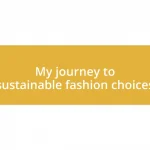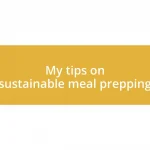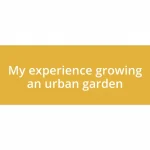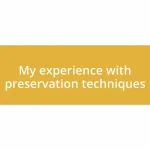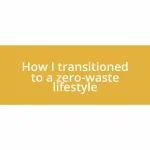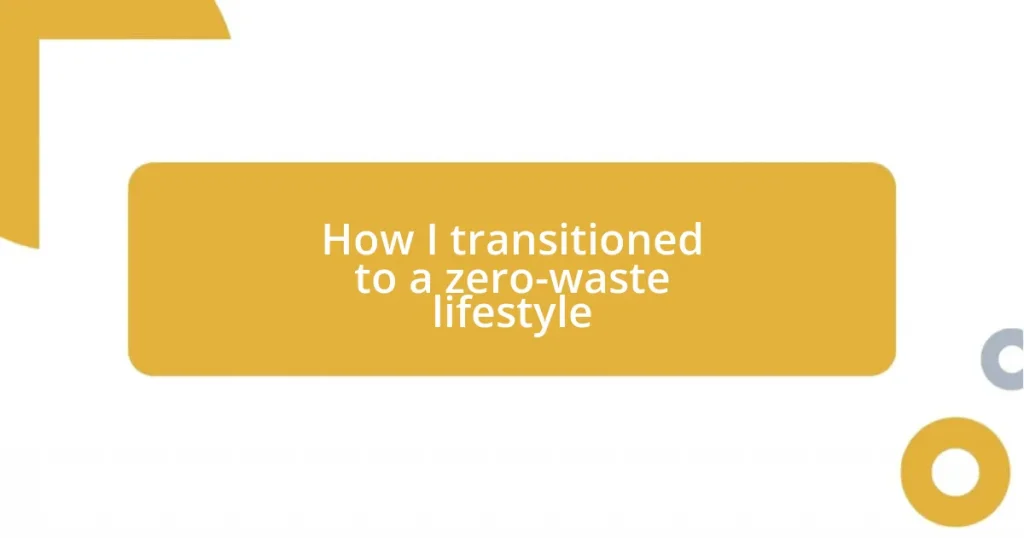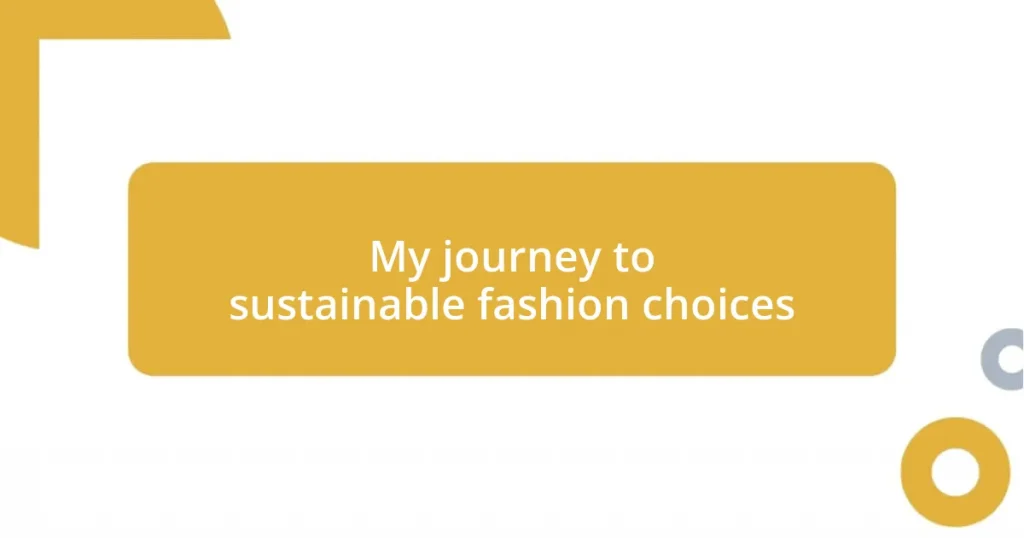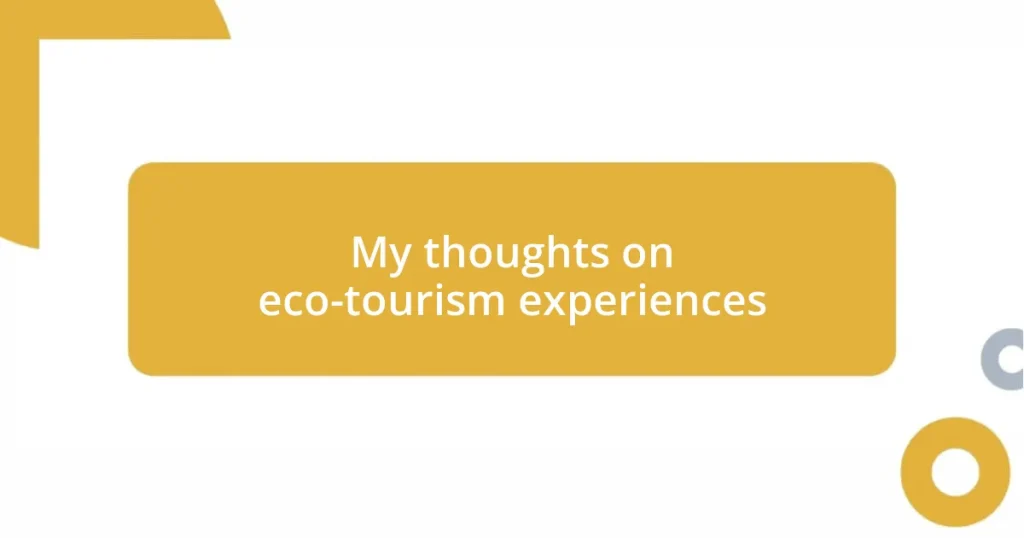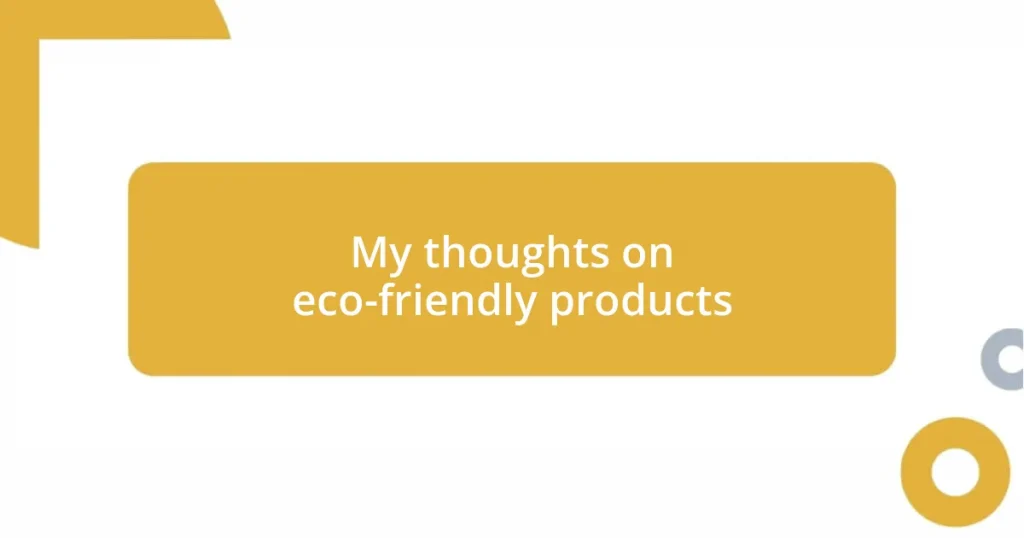Key takeaways:
- Zero-waste principles focus on reducing consumption, reusing products, and composting to minimize waste impact.
- Identifying and tracking everyday waste sources can empower individuals to make significant positive changes in their habits.
- Setting realistic zero-waste goals through small, achievable steps fosters motivation and a sense of accomplishment.
- Engaging with the zero-waste community enhances knowledge, support, and collective action towards sustainability.
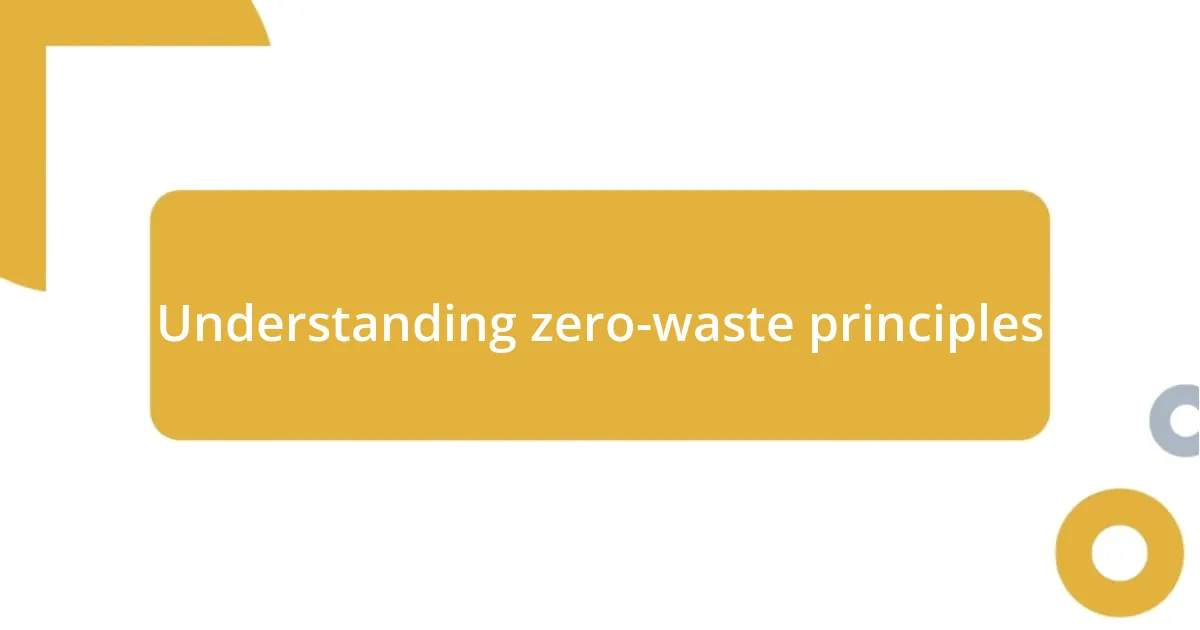
Understanding zero-waste principles
At the heart of zero-waste principles lies the idea of reducing our consumption to the essentials. I remember the moment I realized how much clutter I had accumulated; it felt overwhelming. Isn’t it eye-opening to think about how our lives can be simpler with fewer items, freeing us not just from physical baggage but also from mental stress?
Another key principle is reusing products as much as possible. For me, replacing single-use items with reusable alternatives was like rediscovering a hidden treasure in my home. I still cherish the glass containers I used to store food; they remind me every day that I can make choices that matter—choices that honor both my well-being and the planet.
Lastly, composting and recycling play crucial roles in this lifestyle as well. When I first tried composting, I was surprised at how much waste I was able to divert from the landfill. What if I told you that turning kitchen scraps into nutrient-rich soil not only nurtures the earth but also nurtures a sense of accomplishment? The experience taught me that waste isn’t just discarded material; it can be transformed into something valuable.
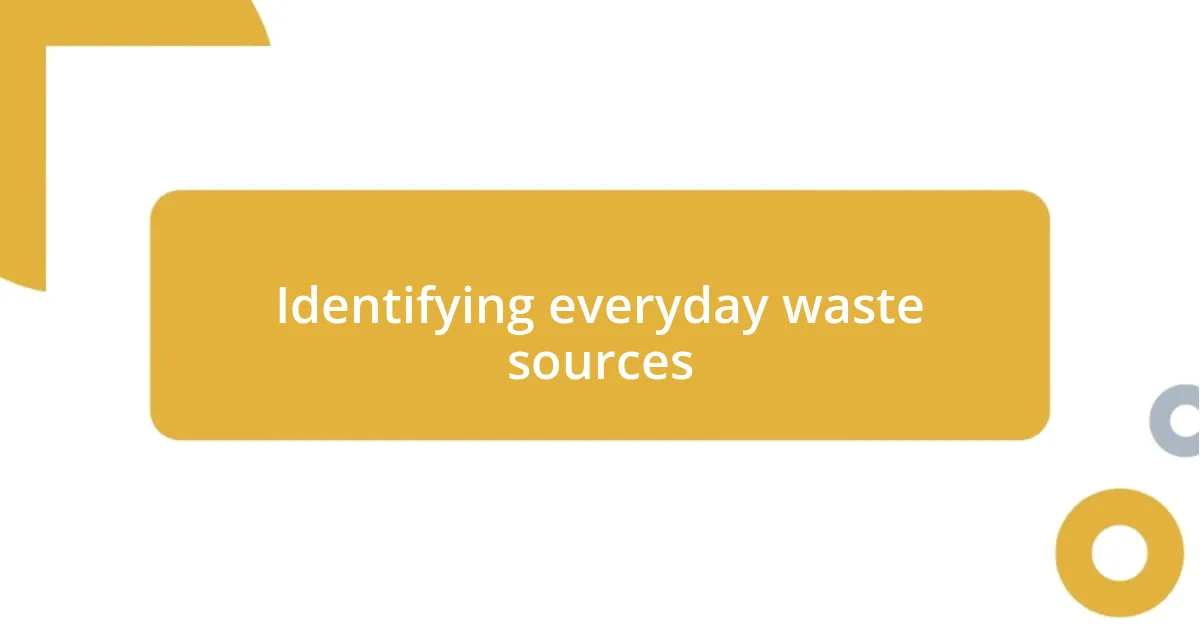
Identifying everyday waste sources
Identifying the sources of everyday waste isn’t just a task; it’s a journey of self-discovery. At first, I was shocked to realize how many items I routinely tossed into the trash without a second thought. For example, those plastic wrappers from snacks and takeout containers quickly added up. It was a wake-up call that made me examine my purchasing habits.
As I started to track my waste, I discovered that certain everyday items contributed disproportionately to my waste levels. I noticed my coffee habit drove quite a bit of waste, from disposable cups to single-use sugar packets. I still remember the sense of guilt I felt when I saw how many coffee cups I’d thrown away, and it inspired me to invest in a reusable mug that has since become my constant companion. Have you ever thought about your own routines and how they might be contributing to waste?
In my experience, even the smallest changes can lead to significant insights. When I decided to start a simple list of items I discarded weekly, it made my waste sources clear and actionable. I realized that switching to bulk buying, where I could bring my own containers, drastically reduced my packaging waste. Tracking this made me feel empowered, knowing that I had the ability to change not just my habits but also my impact on the environment.
| Waste Source | Impact |
|---|---|
| Plastic Bags | Contributes to environmental pollution, often used once and discarded |
| Takeout Containers | Adds to landfill waste, usually non-recyclable |
| Single-Use Cups | Massive contributor to waste, often ending up in landfills |
| Food Packaging | High levels of plastic waste from packing materials |
| Disposable cutlery | Typically non-recyclable, adds to plastic pollution |
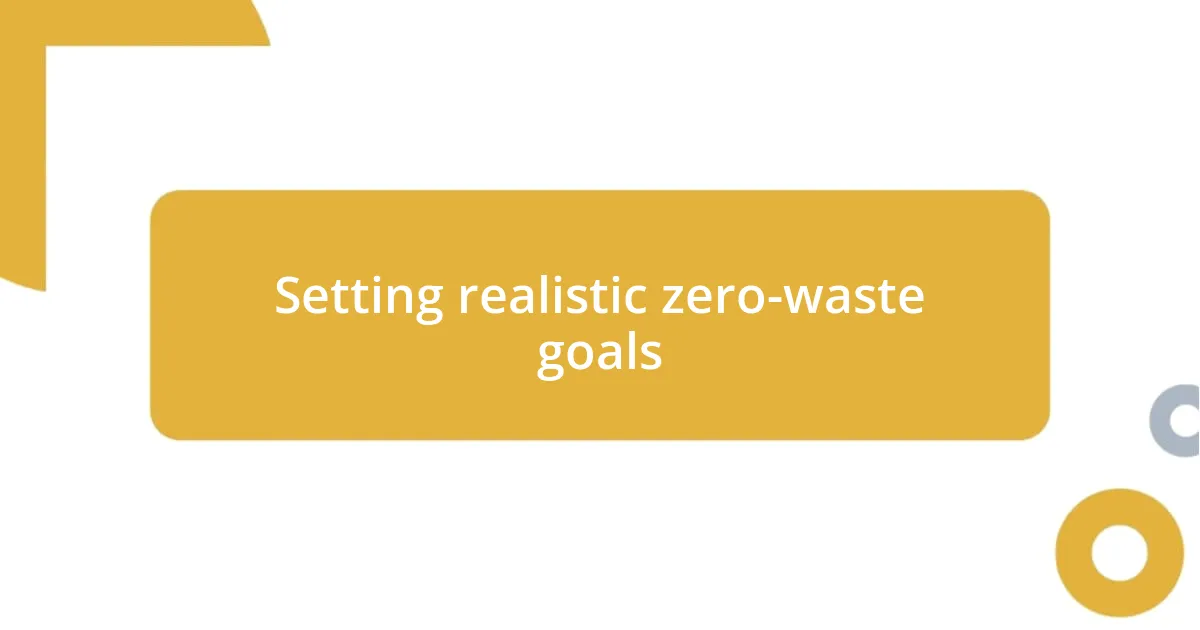
Setting realistic zero-waste goals
Setting realistic zero-waste goals is all about understanding your limits and creating a balanced approach. I learned this when I aimed too high—a sudden shift led to frustration instead of progress. It was a humbling experience that taught me it’s crucial to set achievable milestones. My friend once shared her strategy of tackling one area at a time, which inspired me to do the same. By focusing on specific goals, like reducing plastic water bottles or switching to bulk shopping, I found that these small victories ignited my motivation and passion.
Here are some practical tips to help you set your own realistic zero-waste goals:
- Start by identifying one category of waste that you can realistically reduce.
- Set a timeline for your goal, allowing yourself flexibility to adjust as needed.
- Celebrate the little wins; they encourage sustainability and remind you of your impact.
- Share your goals with others to create accountability and community support.
- Reflect regularly on your progress and adapt your strategies according to what works for you.
Each goal you set becomes a stepping stone in your zero-waste journey, making the challenge more manageable and less daunting. Remember, it’s about progress, not perfection.
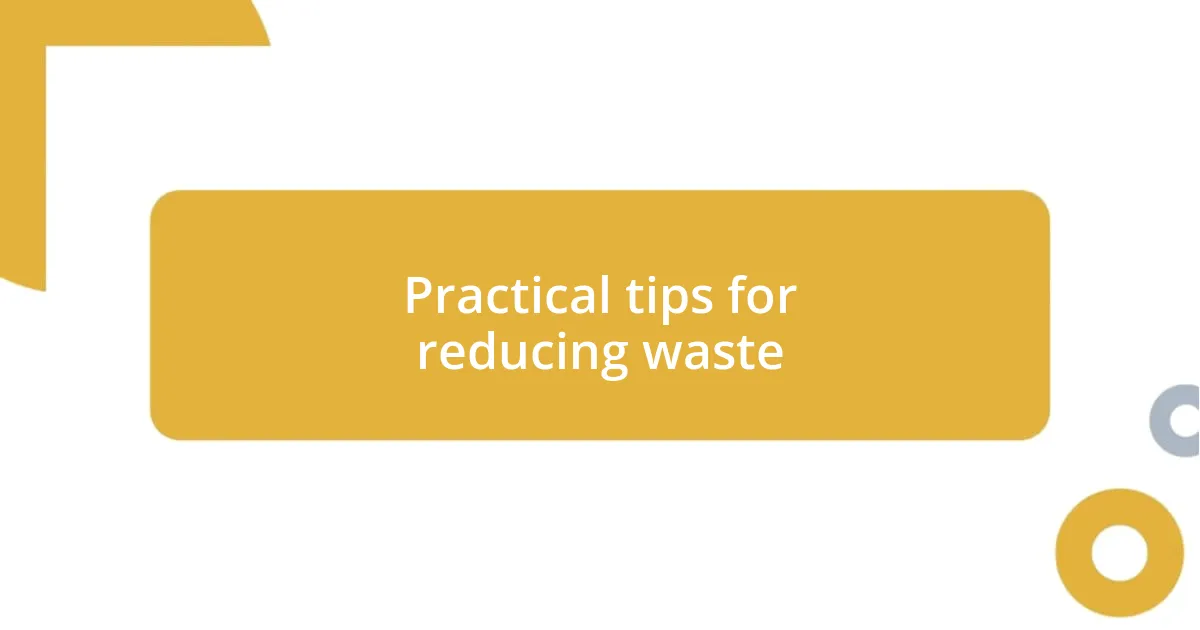
Practical tips for reducing waste
Reducing waste often starts with simple, actionable changes in our daily routines. I found that keeping reusable bags in my car made it almost automatic to avoid plastic bags during shopping trips. Have you ever noticed how easy it is to forget those bags at home? With them on hand, I not only cut down on plastic waste but also felt a sense of pride every time I said no to a plastic bag at checkout.
Another impactful step was rethinking my food storage. I used to rely heavily on plastic wrap and disposable containers, but a switch to glass jars and beeswax wraps changed everything for me. It felt good to stock the fridge with beautiful glass containers full of leftovers instead of a clutter of mismatched plastic. Plus, those wraps, which are both eco-friendly and reusable, sparked conversations with friends about sustainable living—an unexpected bonus.
Composting has also played a huge role in my waste reduction journey. I initially hesitated, thinking it would be too complicated. But once I started, I realized how quickly food scraps turned into rich soil—it’s like magic! Have you ever seen how vibrant a garden can be when nourished by compost? Creating that connection to nature through composting has not only minimized my kitchen waste but has also deepened my appreciation for the life cycle of food.
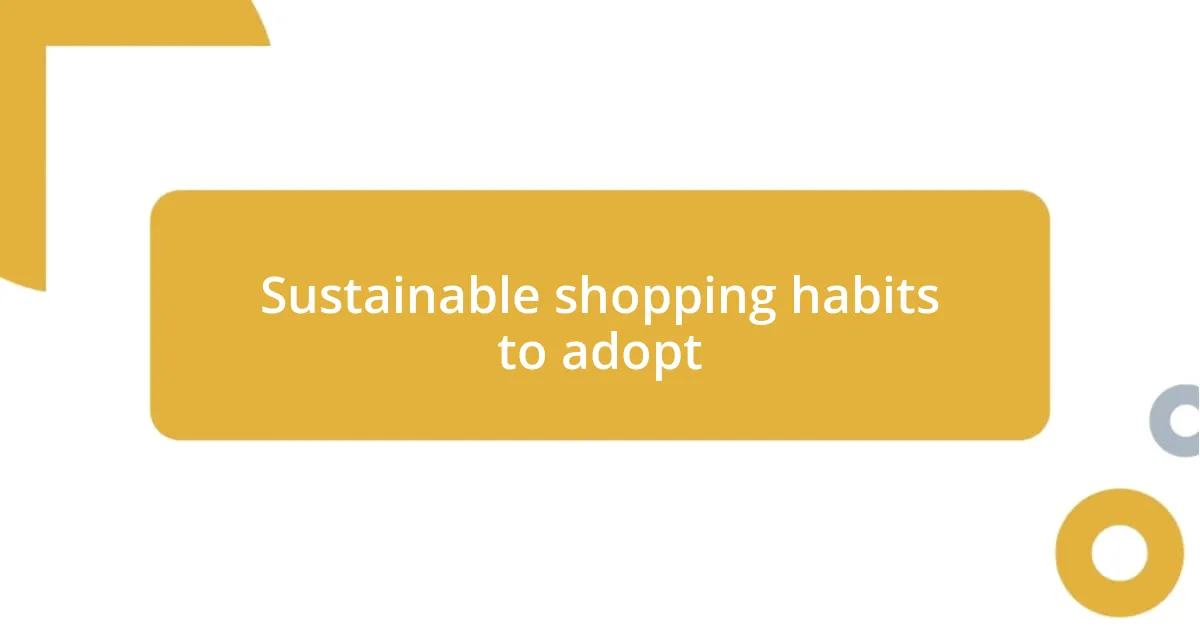
Sustainable shopping habits to adopt
Adopting sustainable shopping habits starts with becoming a mindful consumer. I remember my first time walking into a thrift store; the thrill of finding unique treasures while knowing I was saving items from landfills felt incredibly fulfilling. Have you ever searched for that perfect vintage piece and felt the excitement of rescuing it? I urge you to explore secondhand options before hitting the fast fashion aisles. This habit not only reduces waste but also brings a sense of character to your wardrobe, allowing you to express your individuality.
Another key strategy is to make a shopping list before heading out. It might sound simple, but I can’t tell you how many times I ventured to the store without one, only to come back with items I didn’t really need. It’s like wandering into a candy shop with no limits! By planning ahead, I’m much less likely to indulge in impulse buys, which often lead to unnecessary waste. Why not try this method for your next grocery run and see how much more focused your shopping becomes?
Lastly, I’ve found that choosing products with minimal to no packaging is a game-changer. The first time I bought loose vegetables instead of pre-packaged ones, I felt almost rebellious. It’s empowering to make choices that align with my values, like selecting bulk items or opting for companies that prioritize sustainability. Have you recognized that every seemingly small decision you make at the store can ripple out and influence larger environmental impacts? It’s these choices that determine not just my lifestyle but shape a collective future toward sustainability.
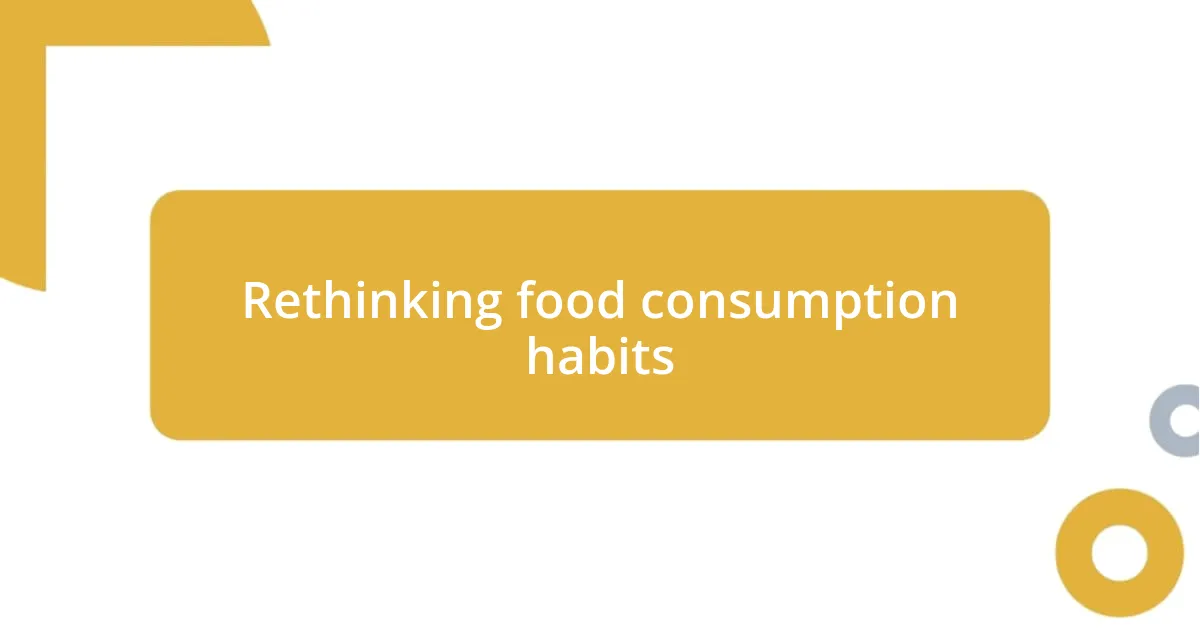
Rethinking food consumption habits
Rethinking how I consume food truly transformed my relationship with it. I once used to buy pre-packaged meals, but now, I relish the process of cooking from scratch. Have you ever chopped fresh veggies and felt a surge of satisfaction? Each meal made with whole ingredients not only tastes better but it also reduces packaging waste and gives me control over my nutrition.
I also began to embrace the beauty of meal planning. Initially, I found it a bit daunting, as my fridge used to resemble a mini food market—overflowing with items that would eventually go to waste. Now, by dedicating a bit of time each week to plan meals, I eliminate that stress. It’s like having a roadmap for my week; it keeps me focused and intentional, ensuring that I buy only what I need. Don’t you love the feeling of using up every last bit of what you’ve purchased?
Lastly, I’ve started to appreciate local food systems. Visiting farmers’ markets became one of my favorite weekend rituals. The atmosphere is so vibrant, filled with chatter and fresh produce. Knowing where my food comes from—and often chatting with the growers—creates a deeper connection to my meals. Have you experienced the joy of biting into a fresh, sun-ripened tomato you picked up from a local vendor? It’s this kind of engagement that reminds me of the importance of supporting local economies and reducing my carbon footprint, all while savoring fresher flavors.
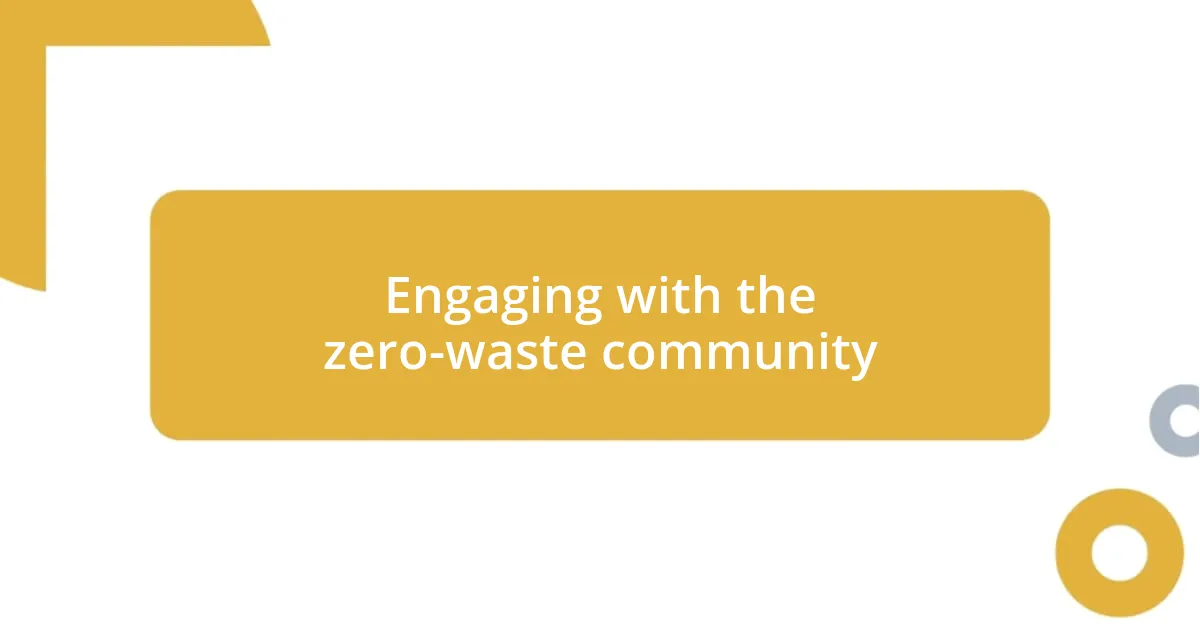
Engaging with the zero-waste community
Engaging with the zero-waste community has been a transformative experience for me. I’ll never forget my first local zero-waste event; it felt like stepping into a room filled with kindred spirits. I remember bonding with strangers over the shared goal of reducing waste, and it was empowering to hear diverse perspectives on sustainability. Have you ever felt that rush of belonging when you’re surrounded by people who share your passions? It’s a reminder that the journey toward a sustainable lifestyle isn’t just personal; it’s a collective effort.
Finding online groups and forums has also opened countless doors for me. I joined a Facebook group dedicated to zero-waste advocates, and it quickly became a treasure trove of ideas and support. The kindness of fellow members sharing tips and experiences made me feel like I was part of something bigger. Have you ever tried picking up a new skill by following someone else’s experience? I’ve gained practical insights on DIY products and local resources, which have enriched my transition to a zero-waste lifestyle.
Lastly, volunteering with local environmental initiatives has deepened my commitment to the zero-waste movement. The first time I participated in a community clean-up, I was stunned by the amount of trash that accumulated in a small area. As I picked up discarded plastic and other waste, it became glaringly clear how much work lies ahead of us. Have you explored ways to give back to your community? Contributing my time not only fuels my drive to live sustainably, but it has also connected me with amazing people who inspire me every day. Each interaction reinforces the idea that together, we can create a substantial impact—one small action at a time.
